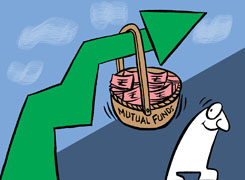I am 41 year's old bp and sugar patient i completed 3years articleship for the purpose CA cource,now iam looking for paid assistant Job because still iam not clear my ipcc exams salary very low 10k per month,can I quit finance and accounting job because of my health please advise or suggest
Ans: At 41 years old with hypertension and diabetes, having completed 3 years of CA articleship but unable to clear IPCC exams while earning ?10,000 monthly, continuing in high-stress finance/accounting roles presents genuine health risks. Research confirms that sedentary, high-pressure accounting and finance jobs significantly exacerbate hypertension and Type 2 Diabetes through chronic stress, irregular routines, and poor sleep quality—particularly affecting professionals aged 35-50. Yes, quitting finance is medically justified. Rather than abandoning your accounting foundation, strategically transition to less stressful, specialized accounting/finance roles utilizing your three years of articleship experience while prioritizing health. Pursue three alternative certifications requiring 6-18 months of flexible, online study—compatible with managing your health conditions while maintaining income. These certifications leverage your existing accounting knowledge, command premium salaries (?6-12 LPA+), offer remote/flexible work options reducing stress, and require minimal additional skill upgradation beyond what you've already invested.? Option 1 – Certified Fraud Examiner (CFE) / Forensic Accounting Specialist: Complete NISM Forensic Investigation Level 1&2 (100% online, 6-12 months) or Indiaforensic's Certified Forensic Accounting Professional (distance learning, flexible). Your CA articleship background is ideal for fraud detection roles. Salary: ?6-9 LPA; Stress Level: Moderate (deadline-driven analysis, not client management); Work-Life Balance: High (project-based, remote-capable); Skill Upgradation Needed: Fraud investigation techniques, financial forensics software—both taught in certification.? Option 2 – ACCA (Association of Chartered Accountants) or US CPA: More flexible than CA (study at own pace, global recognition, no lengthy articleship repeat). ACCA requires 13-15 months online study with five paper exemptions (since you've completed articleship); US CPA takes 12 months post-articleship. Salary: ?7-12 LPA (India), higher internationally; Stress Level: Lower (flexible study schedule, no rigid mentorship like CA); Work-Life Balance: Excellent (flexible learning, no daily office stress initially); Skill Upgradation: International accounting standards, tax practices, audit frameworks—all covered in coursework. Option 3 – CMA USA (Cost & Management Accounting): Specializes in management accounting and financial planning vs. auditing. Requires two exams, 200 study hours total, completable in 8-12 months. Highly preferred by MNCs, IT companies, startups for finance manager/FP&A roles. Salary: ?8-12 LPA initially, potentially ?20+ LPA as Finance Manager/CFO; Stress Level: Low (CMA roles focus on strategic planning, less client pressure); Work-Life Balance: Excellent (corporate roles often more structured than CA practice); Skill Upgradation: Management accounting principles, data analytics, financial modeling—valuable for modern finance roles.? Final Advice: Quit immediately if current role is deteriorating health. Register for ACCA or US CPA within 30 days—most flexible, globally recognized, requiring minimal additional investment. Simultaneously pursue Forensic Accounting certification (6-month concurrent track) as backup specialization. Target roles as Compliance Analyst, Forensic Accountant, or Corporate Finance Manager—all leverage your articleship, offer 40-45 hour weeks (vs. CA practice's 50-60), enable remote work, and command ?8-12 LPA within 18 months. Your health is irreplaceable; your accounting foundation is valuable enough to transition strategically rather than completely exit.? All the BEST for a Prosperous Future!
Follow RediffGURUS to Know More on 'Careers | Money | Health | Relationships'.



























